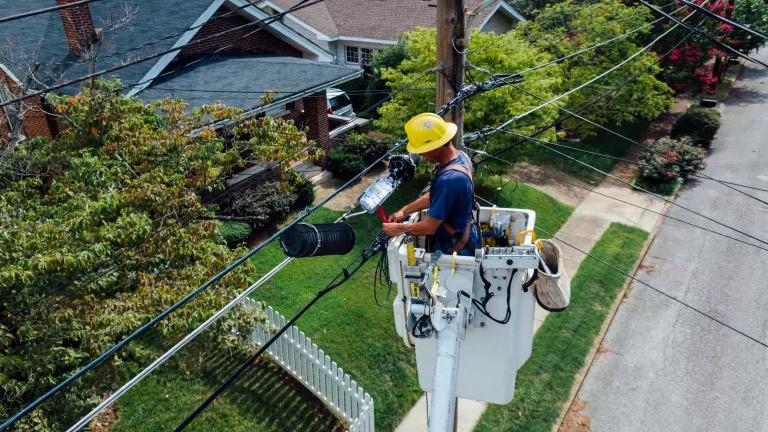Cincinnati Commits to Low-Income Energy Efficiency

The City of Cincinnati launched a new low-income multifamily energy efficiency pilot program, Warm Up Cincy, to address energy challenges faced by tenants. Some Cincinnati residents are disproportionately burdened with energy inefficient homes and can be forced to choose between paying an astronomical energy bill or paying for their groceries.
Energy burden refers to the percentage of household income that goes toward energy costs. Sixteen of 52 Cincinnati neighborhoods have "weighted energy burden levels greater than six percent, which is considered the threshold for energy poverty" according to a Greater Cincinnati Energy Alliance findings. The report, Energy Burden in the City of Cincinnati: A guidebook to implementing community-based programs to address energy burden, analyzed Cincinnati by census tract and neighborhood.
Cincinnati had the 8th highest energy burden for its low-income residents according to a 2016 report. In Cincinnati and many other cities, the high energy bills experienced by poor and minority residents can be traced to decades of redlining and de facto segregation that concentrated disadvantaged populations in neighborhoods with under performing buildings. Equitable access to energy is a human right and, through the American Cities Climate Challenge, the City of Cincinnati is leading the way in addressing this history.
WarmUp Cincy will improve building efficiency and provide tenants with energy efficiency education that will stay with them for life. This 90-day pilot aims to address energy burden faced by tenants who live at or below 200 percent of the federal poverty level and addresses the gap in energy efficiency offerings for low-income renters. Currently, most of Cincinnati’s existing energy efficiency programs provide services for owners of single-family homes rather than renters. The program is funded through a rate case settlement with Duke Energy Ohio, Cincinnati’s utility company.
WarmUp Cincy will help families better recognize why their energy bills are high, what an efficient unit can look like, and what they can do to ask for efficiency from their landlord. The program will provide families with in-unit energy equipment upgrades, audits and assessments, and financial assistance to tackle energy bill debts.
The City hopes to have 65 households go through the program and will focus recruitment on tenants whose electricity has historically been shut off. The City will work in conjunction with three local partners: Community Action Agency (CAA), Greater Cincinnati Energy Alliance (GCEA) and People Working Cooperatively (PWC) to reach and engage participants in the program.
The pilot’s first 30 days will establish and fine tune an effective program for tenants. After 60 days, there will be an intensive energy workshop focused on energy education and behavior change. 90 days after the launch, the City will collect feedback, assess the findings, and celebrate successes with an end-of-program event. The second phase of this work will focus on whole-building strategies like capital investment in deep savings measures to directly benefit tenants with energy savings and cost reductions. A program that combines tenant action with efficient upgrades to the buildings they live in can see up to 30 percent better efficiency and save significantly on utility bills.
A changing climate and increases in extreme weather mean that many of Cincinnati’s structurally unprepared multifamily buildings will not keep families warm enough this winter nor cool enough during heat waves. WarmUp Cincy is a major justice initiative for the city and will also address the city’s greenhouse gas (GHG) emissions.




